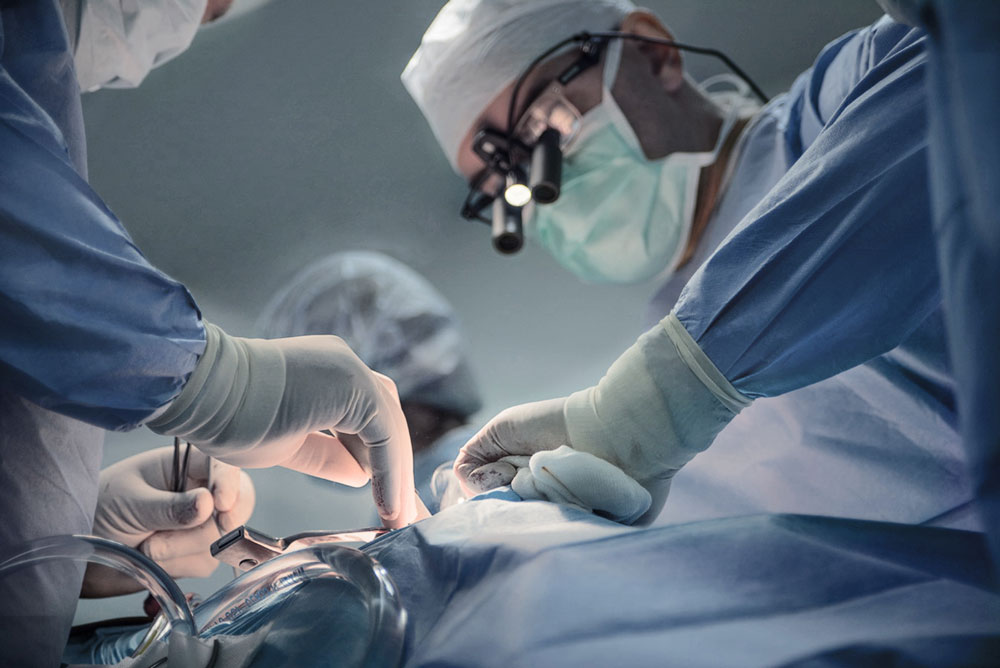
When facing the need for surgery, many patients worry about long recovery times, significant pain, and noticeable scarring. Fortunately, advances in medical technology have made minimally invasive surgery a preferred option for many common procedures. At Madison Medical, our skilled surgeons specialize in cutting-edge laparoscopic and robotic-assisted techniques, providing patients with safe, effective treatments that promote faster healing and improved outcomes.
What Is Minimally Invasive Surgery?
Minimally invasive surgery (MIS) refers to a range of surgical techniques that use small incisions, specialized instruments, and advanced imaging technology to perform procedures with greater precision. Unlike traditional open surgery, which requires large incisions, MIS allows surgeons to operate with minimal disruption to surrounding tissues.
Common Minimally Invasive Techniques
- Laparoscopic Surgery: This procedure involves inserting a tiny camera (laparoscope) and surgical instruments through small incisions. The surgeon views the internal organs on a monitor, allowing for precise and controlled movements.
- Robotic-Assisted Surgery: This technique enhances laparoscopic surgery by using robotic arms controlled by the surgeon. The robotic system provides enhanced dexterity, stability, and visualization, making it especially useful for complex procedures.
Benefits of Minimally Invasive Surgery
Minimally invasive techniques offer numerous advantages over traditional open surgery, making them the preferred choice for many patients at Madison Medical.
1. Smaller Incisions and Less Scarring
Since MIS uses small incisions, patients experience minimal scarring. This is particularly beneficial for cosmetic concerns and reduces the risk of complications related to wound healing.
2. Faster Recovery Times
Patients undergoing laparoscopic procedures often return to their normal activities sooner than those who have open surgery. Many minimally invasive surgeries are performed on an outpatient basis, allowing patients to recover in the comfort of their homes.
3. Reduced Pain and Discomfort
Smaller incisions mean less trauma to the body, resulting in less postoperative pain. Many patients require fewer pain medications after surgery, promoting a quicker return to daily activities.
4. Lower Risk of Complications
Minimally invasive techniques reduce the risk of infection, excessive bleeding, and other complications associated with traditional surgery. This leads to better patient outcomes and a lower likelihood of needing additional procedures.
5. Improved Precision and Outcomes
Robotic-assisted surgery allows for greater precision, reducing the risk of damage to surrounding tissues. This technology enhances surgical accuracy, making it especially beneficial for delicate procedures.
Common Minimally Invasive Procedures at Madison Medical
Our experienced team of Madison Medical surgeons performs a variety of minimally invasive procedures, including:
Hernia Repair
Laparoscopic hernia repair involves inserting a small camera and surgical instruments through tiny incisions to repair weakened abdominal muscles. This approach results in less postoperative pain and a quicker return to physical activity.
Gallbladder Removal (Cholecystectomy)
For patients suffering from gallstones or gallbladder disease, laparoscopic cholecystectomy is a common procedure. This technique minimizes downtime and discomfort compared to open surgery.
Appendectomy
A laparoscopic appendectomy is the preferred method for removing an inflamed appendix. Patients recover faster and experience fewer complications with this minimally invasive approach.
Colon Surgery
Certain colorectal procedures, including polyp removal and cancer treatment, can be performed using minimally invasive techniques. This leads to a reduced hospital stay and quicker recovery.
What to Expect During Recovery
Recovery from minimally invasive surgery is typically faster and smoother than traditional surgery, but proper post-operative care is essential for optimal healing.
Post-Surgical Care Tips:
- Follow your surgeon’s instructions regarding activity restrictions and wound care.
- Stay active as recommended, but avoid heavy lifting or strenuous exercise until cleared by your doctor.
- Manage pain effectively with prescribed medications or over-the-counter options.
- Monitor for signs of complications, such as excessive pain, fever, or unusual swelling, and contact your doctor if needed.
- Attend all follow-up appointments to ensure proper healing and recovery progress.
Why Choose Madison Medical for Minimally Invasive Surgery?
At Madison Medical, our board-certified surgeons are dedicated to providing the highest level of care using the latest advancements in minimally invasive techniques. Whether you need hernia repair, gallbladder removal, or another general surgical procedure, our team is committed to ensuring a safe and successful outcome.
If you’re considering minimally invasive surgery, schedule a consultation with Madison Medical today. Our experts will guide you through the process, helping you make informed decisions about your health and recovery.
Contact Madison Medical Today
For more information about our minimally invasive surgical options, call us at (414) 272-8950 to schedule an appointment with one of our experienced surgeons.
